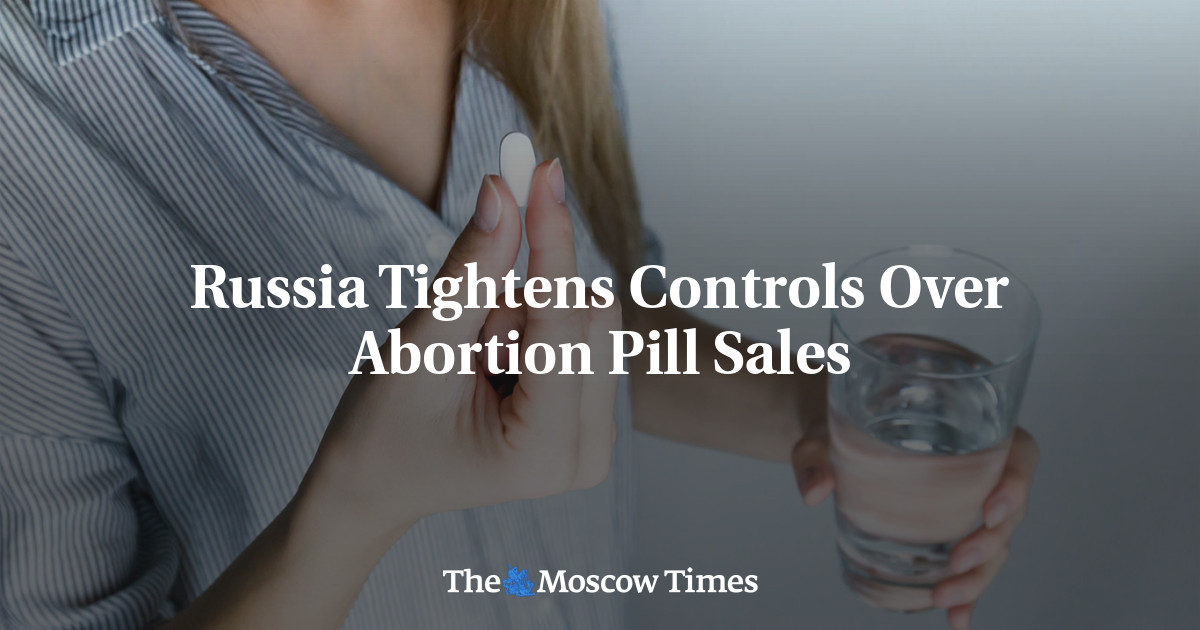
Russia’s Health Ministry will limit the distribution of abortion-inducing pills in pharmacies, in the country’s latest move to clamp down on abortion access.
Misoprostol and mifepristone have been added to the ministry’s list of medications subject to subject-quantitative registration (PKU), according to its decree published Tuesday.
The ministry’s order will come into effect on Sept. 1, 2024, and will remain in force until Sept. 1, 2030.
Under this designation, patients will be required to obtain a doctor’s prescription in order to purchase either abortion drug. Pharmacies and hospitals will also be required to obtain a special license to distribute these drugs as well as report how many packages they have sold.
The PKU registry currently consists of over 130 medications, including narcotics and psychotropic substances.
The Health Ministry first proposed adding misoprostol and mifepristone to the PKU registry in July, claiming that taking these medications to terminate a pregnancy without a doctor’s prescription increases the risk of complications and could lead to death, such as in cases of ectopic pregnancies or allergic reactions.
At the time, Health Minister Mikhail Murashko said controlling the distribution of these pills was necessary to prevent their “abuse.” He also criticized what he called the “improper practice” of women pursuing their careers and education before having children.
Meanwhile, Professor Natalia Dolgushina, the Health Ministry’s chief external specialist in women’s reproductive health, denied that adding misoprostol and mifepristone to the PKU list would reduce access to emergency contraception.
“For emergency contraception, it is recommended to use levonorgestrel, combined oral contraceptives, and insertion of an intrauterine contraceptive device,” she said.
According to the state-controlled polling agency VTsIOM, 55% of Russians do not support banning the unrestricted sale of abortion pills.
Young people, childless individuals, residents of Moscow and St. Petersburg, women, and people with lower incomes were more likely to oppose such a measure. The only group of Russians that firmly supported the Health Ministry’s proposal was residents of the North Caucasus Federal District.
Russia’s demographic crisis has prompted officials to weigh various measures for raising birth rates in the country.
Pyotr Tolstoy, the deputy speaker of Russia’s State Duma, called on Murashko to ban abortions in private clinics. Following this, one-third of private medical institutions in the republic of Tatarstan revoked their licenses for abortion services, while authorities in the republic of Mordovia banned the “propaganda” of abortions.
Some private clinics in the Chelyabinsk region also stopped performing abortions after discussing the matter with officials.
Amid the war in Ukraine and the resulting economic instability, Russians in 2022 purchased 60% more medical abortion drugs than in the previous year. In total, 1.4 million packages were sold, according to the analytical company RNC Pharma.